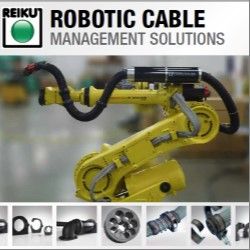New Set of Rules for 21st Century Care Robots
Isaac Asimov famously devised three laws of robotics that underpinned a number of his science fiction books and short stories, Professor Tom Sorell of the University of Warwick has helped develop a new set of rules that they believe will be needed for 21st century care robots.
Following recent developments in robotics research philosopher Professor Tom Sorell of the University of Warwick has helped produced six values to be used in properly-designed care-robots.
First fully stated in 1942 in the story Runaround, Asimovs Three Laws of Robotics sought to provide a framework for the relationship between humankind and robots, then mainly creatures of science fiction. Now that robots are widely used in caring for older people, as well as in military and industrial applications, rules for making and interacting with them are a practical and ethical necessity.
The six values are designed address the circumstances of older people in need of support and are to be embodied in the programming and hardware of the care-robot.
Professor Sorell argues that the six values can be promoted by a care-robot "depending on whether the purpose of the robot is to prolong normal adult autonomy and independence as far as possible into old age, or whether the purpose is to take the load off the support network for an older person".
The Six Values proposed are:
*Autonomy - being able to set goals in life and choose means;
*Independence - being able to implement ones goals without the permission, assistance or material resources of others;
*Enablement - having, or having access to, the means of realizing goals and choices;
*Safety - being able readily to avoid pain or harm;
*Privacy - being able to pursue and realize ones goals and implement ones choices unobserved
*Social Connectedness - having regular contact with friends and loved ones and safe access to strangers one can choose to meet.
Discussing the values, which were developed by Professor Tom Sorell from the University of Warwick, in collaboration with Professor Heather Draper of the University of Birmingham, for a European Commission funded project called ACCOMPANY, Professor Sorell from the University of Warwick said there were "moral reasons why autonomy should be promoted before the alleviation of burdens on carers".
"Older people deserve to have the same choices as other adults, on pain otherwise of having an arbitrarily worse moral status. And where the six values conflict, there is reason for autonomy to be treated as overriding", argues Professor Sorell.
On the question of whether the care-robot is answerable to the older person or carers who might worry about the older person and seek to restrict their activities, Professor Sorell says that the ability of the older person "to lead their life in their own way should prevail" with this being reflected in how the six values are applied.
Professor Sorell recognises that there may be exceptions to the primacy of Autonomy:
"Exceptions might be where older people lack ‘capacity in the legal sense (in which case they would not be autonomous), where they are highly dependent, or where leading life in ones own way is highly likely to lead to the need for rescue".
Care-robots that are designed to promote the six values and assist older people to pursue their own interests are, Professor Sorell argues, "better than robots designed merely to monitor the vital signs and warn of risks and dangers".
"Robots designed to let the user control information about their own routines and activities (including mishaps) are also to be preferred to those engaged in data-sharing with worried relations or health care workers".
The researchers will continue to work on and refine the six values as engineers develop such devices and even Asimov himself continued to refine is own laws in particular adding a 4th or 0th law in later stories
For further for information for media please contact:
Peter Dunn, Director of Press and Policy, University of Warwick,
UK Tel: 024 76 523708 Mobile 07767 655860 email: p.j.dunn@warwick.ac.uk
Featured Product

REIKU's Cable Saver™ - The Most Versatile Modular Robotic Cable Management Solution
REIKU's Cable Saver™ Solution eliminates downtime, loss of revenue, expensive cable and hose replacement costs, maintenance labor costs. It's available in three sizes 36, 52 and 70 mm.
All of the robots cables and hoses are protected when routed through the Cable Saver™ corrugated tubing.The Cable Saver™ uses a spring retraction system housed inside the Energy Tube™ to keep this service loop out of harms way in safe location at the rear of the Robot when not required. The Cable Saver™ is a COMPLETE solution for any make or model of robot. It installs quickly-on either side of the robot and has been tested to resist over 15 million repetitive cycles.
REIKU is committed to providing the most modular, effective options for ensuring your robotic components operate without downtime due to cable management.
www.CableSaver.com
